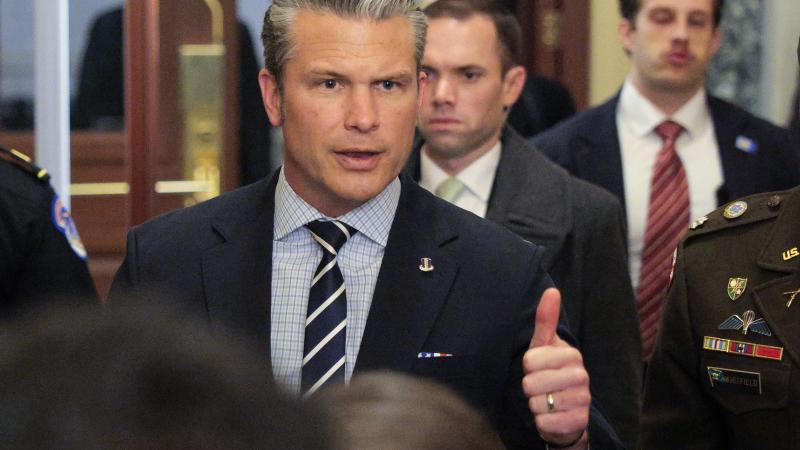College to face jury for ignoring 'blackmail' used to find student guilty of rape
"Meritorious lawsuits" by falsely accused students less likely if plaintiffs required to disclose real names, which lower courts have rarely required, law professor tells federal appeals court scrutinizing pseudonymity.
A student who claims he was wrongly found responsible for sexual misconduct due to anti-male bias and arbitrary decisions by Iowa's Dordt College will get to argue his case before a federal jury. It could be one of the last such cases to make it that far.
A federal appeals court is considering whether to require plaintiffs to use their real names by default in sexual misconduct litigation against colleges, which would run counter to the "great majority of district courts" on the subject and could discourage students from filing "meritorious lawsuits," according to a law professor.
The Boston-based 1st U.S. Circuit Court of Appeals heard oral arguments in a case against MIT Wednesday, a week after an Iowa federal judge refused to dismiss Title IX "erroneous outcome," common-law due process and contractual claims against Dordt by "John Doe."
Politico reported the appeals panel didn't seriously question a lower court's refusal to grant pseudonymity to the ex-student suing MIT, while floating the possibility the software engineer could win over the trial judge with more details about the "potential impact of publicity."
While not binding outside of Maine, Massachusetts, New Hampshire, Puerto Rico and Rhode Island, the 1st Circuit could influence its sister circuits.
It would be the first to rule squarely on pseudonymity motions in this context, according to UCLA First Amendment law professor Eugene Volokh, who filed a neutral friend-of-the-court brief.
The Atlanta-based 11th Circuit dismissed a case by another Doe plaintiff this spring on the grounds that he didn't plausibly allege his suspension was "on the basis of sex," rendering his pseudonymity motion moot. Pseudonymity wasn't contested in other appeals, Volokh told Just the News.
Families Advocating Campus Equality filed a brief in favor of the plaintiff. "Students should not be required to suffer the very harm they are suing to vindicate by being forced to sue under their real names," the due process group wrote.
"In this day and age, it is hard to gainsay the fact that when most people hear the phrase 'falsely accused rapist,' they ignore the first two words," it said, claiming that nonwhite, disabled and first-generation students were at highest risk from "inequitable disciplinary procedures."
U.S. District Judge C.J. Williams said a reasonable jury could find Dordt's Title IX proceeding "disfavored Doe" as a male, its policies framed women alone as "victims of sexual assault," and that "gender bias was a motivating factor in the erroneous outcome" of the proceeding, suggesting "articulable doubt" about his guilt.
The court noted the Obama administration threatened to pull funding from colleges that didn't take "immediate action" against sexual harassment, which along with campus "cultural pressures" gave Dordt incentive to "take a harsher stance on sexual assault."
Williams also rejected the Christian liberal arts school's claim that the First Amendment shields it from liability for discrimination based on its religious beliefs.
Dordt claimed the alleged victim, "Jane Roe," couldn't consent to sexual intercourse with Doe, whose body mass index is five points below hers, according to the court's summary of "undisputed facts." They consumed alcohol together before the incident.
Roe "tried to reach into Doe's pants" while they were watching TV with his roommate, and when they finally had sex in her car, he obtained her "affirmative, verbal consent at each stage." She told investigators she was "not passed out or blacked out" and never filed a complaint against him.
A female student who took Roe to the hospital, "S.S.," reported the sexual encounter to Dordt as rape despite having no "first-hand knowledge" of it, and told investigators she wanted Doe removed from campus for his "alcohol problem."
Student Life Committee Chair Erin Olson, who presided over the proceeding, didn't tell Doe that the reporting student was in her class or that she told S.S. not to tell anyone they had a prior conversation about the incident.
Doe's roommate said S.S. threatened to "blackmail" him over his marijuana use if he didn't testify against the accused student. Dean of Students Robert Taylor "did not recall" investigating the blackmail claim, even though he knew S.S. "convinced" the reluctant roommate to testify.
The proceeding's investigative summary not only falsely claimed Roe reported she was sexually assaulted, but left out her statement that Doe was "just as drunk as her" during sex and S.S.'s alleged blackmail of his roommate, Judge Williams said.
It's not clear that Olson's Student Life Committee had any Title IX training, and Dean Taylor didn't provide "investigation or adjudication procedures" requested by a committee member. Multiple participants testified there was "no discussion of conflicts of interest pertaining to Doe’s hearing specifically" or in their proceedings generally.
Doe's summons to the hearing didn't identify its members, procedures, his rights, witness statements or the investigative summary. The committee, which received "two pre-written dismissal notices" before the hearing, received nothing about how much Roe drank, her weight or "timeline" of alcohol consumption.
Title IX coordinator Howard Wilson changed the appeal procedure the day of the hearing and compiled the appeal packet despite being "incapable of impartiality by the time Doe appealed," Judge Williams said.
Wilson added an "aide-memoir" characterizing Doe as a "violent, pattern sexual predator" and the district attorney's subpoena for Dordt's investigation records, even though he knew the DA had "already dropped the case for lack of corroborating evidence." The appeals committee was also left in the dark about the blackmail allegations, and denied Doe's appeal.
Williams called this plausible evidence that the appeal was denied arbitrarily, because Wilson's materials had "no bearing" on Doe's dismissal, and that a reasonable jury could find the entire proceeding marred by "bad faith."
In readmission discussions, Doe repeatedly declined to answer if he was contemplating legal action. He refused to sign Wilson's statement admitting he sexually assaulted Roe, at which point Wilson allegedly "deliberately 'slow-walked'" his readmission application.
The parties reached agreement when Doe agreed to finish his degree off-campus, and he graduated in 2019.
The Facts Inside Our Reporter's Notebook
Documents
Links
- Politico
- 11th Circuit dismissed a case by another Doe
- Families Advocating Campus Equality filed a brief














